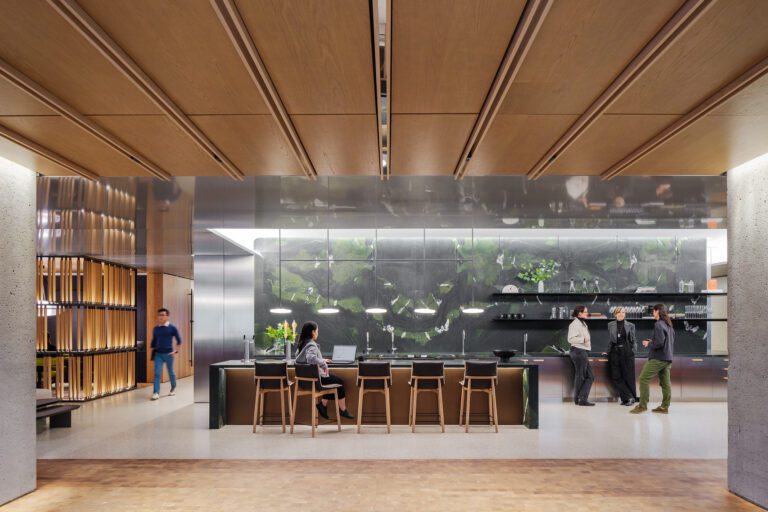Sustainable wood building materials are not only good for the environment, but they can also improve indoor air quality (IAQ), as well as indoor environmental quality. This can contribute to the health of the building occupants, so it’s important to plan with IAQ in mind. By choosing materials that take into consideration IAQ, like wood wall systems, it also means you can save energy and money down the line.
Why Is IAQ Important?
Breathing quality indoor air is critical for good health, comfort, and well-being. Most Americans spend a significant amount of time indoors, where gases, chemicals and other pollutants can cause negative impacts to their short-term and long-term health. Because all decisions made during design, construction, commissioning, and maintenance end up having a direct impact on building IAQ, it’s important to choose materials and methods that contribute to quality IAQ.
With our products, you’ll never have to worry about whether you’re making a good, sustainable choice. We know how important IAQ is, which is why all of our wood products conform to sustainability standards, including FSC, LEED v4, WELL, CDPH v1.2, and HPD. When you choose our wood building materials for your project, you can have confidence knowing they’re an environmentally-friendly choice that will contribute to quality indoor air.
How Does IAQ Affect Health?
Indoor Air Quality (IAQ) is strongly connected to health and well-being. Some health effects may show up shortly after a single exposure or repeated exposures to a pollutant. These include irritation of the eyes, nose, and throat, headaches, dizziness, and fatigue (EPA).
What to Consider When Choosing Building Materials
It can be daunting to think about IAQ levels on top of all the other factors of designing a space. Some of the biggest offenders of poor IAQ are caused by harmful pollutants, inadequate ventilation, and subpar air exchange.
When choosing building materials, keep these factors in mind:
LEED Certification
LEED stands for Leadership in Energy and Environmental Design, and it is the most widely used certification system for green buildings throughout the world. Consider choosing a company that contributes towards LEED credits to ensure sustainability is in the forefront of your design.
VOCs
Volatile organic compounds (VOCs) are emitted as gases from certain solids or liquids. VOCs include a variety of chemicals, some of which may have short- and long-term adverse health effects (EPA). Certain finishes, stains and paints contain harmful VOCs so it’s important to choose a company that uses low-VOC finishes in their products.
At Rulon International, aqueous finishes and glues are used to limit harmful Volatile Organic Compounds (VOCs). In addition, no added formaldehyde (NAF) and ultra-low-emitting formaldehyde (ULEF) cores are used in our products.
Indoor Advantage Gold Certified
We’re Indoor Advantage Gold Certified, which means our products — like our wood wall systems — meet the most stringent of air quality standards in the industry. The process to achieve certification is incredibly rigorous, and it included a thorough review of our products for formulation and emissions, as well as an examination of our manufacturing site’s document control system.
The Right Building Materials Can Improve Your IAQ
If you’re concerned about indoor air quality for your next project, it’s important to know that not all companies that offer wood wall systems can claim to be Indoor Advantage Gold Certified. We’re proud of the many steps we take to ensure occupants can breathe easy in the space you create. Our commitment to sustainability is evergreen, and when you use our custom wood wall systems, you can feel good about the choices you’ve made.
To learn more, schedule a design call with our team today!




